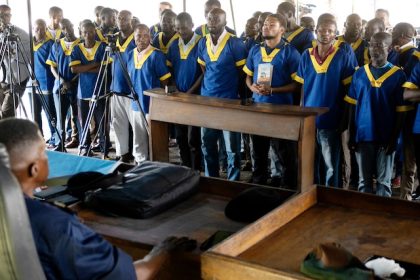
A military court in the Democratic Republic of Congo has sentenced 37 individuals, including three Americans, a Briton, a Belgian, and a Canadian, to death for their involvement in an attempted coup against President Félix Tshisekedi. The group was accused of orchestrating an attack in May 2024 on both the presidential palace and the home of Vital Kamerhe, a close ally of the president.
Among those sentenced was Christian Malanga, a Congolese-born US citizen believed to be the plot’s leader, who was killed during the attack. His son, Marcel Malanga, along with his friend Tyler Thompson—both in their 20s and from Utah—were also sentenced to death. Marcel had testified in court that his father had threatened his life if he refused to participate in the plot. Another US citizen, Benjamin Zalman-Polun, who had business ties to Christian Malanga, was also condemned.
Jean-Jacques Wondo, a Congolese-Belgian dual citizen and a prominent researcher on regional politics, was similarly sentenced to death. Human Rights Watch has expressed concerns over the strength of the evidence against him, suggesting that the evidence connecting him to the coup attempt was thin.
In total, 51 individuals were tried in the case, with 14 acquitted due to a lack of evidence linking them to the attack. The trials were broadcast on national TV and radio, underscoring the gravity of the situation. The convicted individuals have five days to appeal their sentences.
While death sentences have not been carried out in DR Congo for two decades, the government lifted the moratorium in March 2024, citing a need to purge “traitors” from the country’s military. However, executions remain rare, and those sentenced to death often serve life imprisonment instead.
The coup attempt took place in Kinshasa on May 19, when armed men in army uniform attacked Kamerhe’s home and later advanced on the president’s residence.
Witnesses say a group of about 20 assailants attacked the palace and an exchange of gunfire followed. An army spokesman later announced on national TV that security forces had stopped “an attempted coup d’etat”. Local media reports identified the group as members of the New Zaire Movement, a political group linked to Christian Malanga, who had been living in exile.

